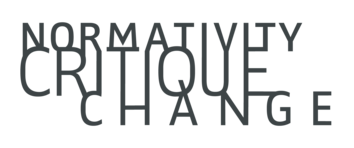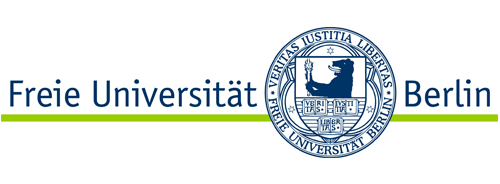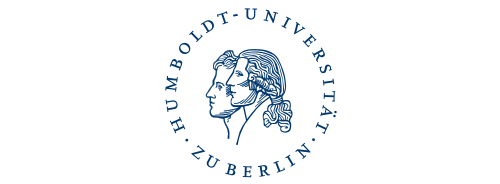Becoming part of the GRK 2638
The online interviews will be conducted on July 11 and 12. We invited all shortlisted candidates via Mail in June. Shortly after the interviews, we inform candidates about the final decision.
As of October 1, 2024, we will admit a new cohort of doctoral candidates. The application process for Cohort 2 will commence in February 2024 with an online kick-off event on February 29. During this event, interested candidates will receive further information about the graduate program, the qualification program, and the application process. Individual questions will also be addressed. In March, we published the official Call for Applications. The application portal remained open from February 29 until April 22 fo 2024.
The application portal requests the reference letter only after the application has been submitted via "Save and Submit" and sends the corresponding link. Therefore, it is advisable to aim for April 22 as the deadline for the application, if possible. However, the portal will remain open until April 29 to account for potential difficulties. It is strongly recommended to plan for the application be submitted by April 22. Changes after "Save and Submit" are not possible. The referees are kindly requested to submit their letters of recommendation by April 29, with a deadline of May 6.
The remuneration for employee positions corresponds to the respective rates of the German public service (TV-L E13 with 65% of the weekly working hours), thereby also covering health insurance and other social security contributions.
The central component of the application is an exposé of the research project. The exposé develops the intra-disciplinary question. Such a thesis proposal indicates the main hypotheses, placing it within the relevant discourse and spelling out a preliminary table of contents. The exposé includes a project timetable with a maximum of ten pages, 1.5 line spacing, an abstract, and a bibliography. The abstract and bibliography are not included as part of the 10-page limit. Per candidate, we ask for one Exposé.
In addition, we request:
- Evidence that you have obtained a degree in one of the disciplines included in the GRK. Applicants should submit their BA and MA certificates (or equivalents) and include the transcripts of records.
- Curriculum vitae in tabular form
- A statement of motivation (maximum: 3 pages, 1.5 line spacing) that describes how you plan to contribute to the group and how your proposed project will fit into its research agenda and areas of investigation. The statement outlines the inter-disciplinary connections of your project. Please also indicate which principal investigators you would like to have as a supervisor.
- A reference from a university professor or lecturer that details your academic ability and potential. Due to confidentiality reasons, the referee must upload the connection to the application portal upon our request. The application portal requests the reference letter only after the application has been submitted via "Save and Submit" and sends the corresponding link for uploading. However, if the referees wish to submit the reference letter beforehand, they are welcome to send it directly to Tobias.Wieland@fu-berlin.de. The letter shall be uploaded until April 29, 2024. The deadline for delayed submission of reference letters is 06 Mai 2024
- Applicants should submit a sample of their work (maximum: 25 pages, excluding bibliography), such as a chapter of their MA thesis, a paper (published or forthcoming), or a work-in-progress chapter of their doctoral dissertation. This sample of their work can, but does not have to, correspond with the exposé.
- Applicants from universities outside of Germany, respectively from non-German-speaking universities, must provide proof of German language proficiency equivalent to at least B1+ GE.
Kick-Off-Event Application Process
On February 29, the GRK hosted an online event with information on the qualification program for doctoral candidates at the GRK and the application process for the 14 currently advertised doctoral positions. The recording of this event, as well as the slides used, are now available online.
Frequently Asked Questions
The thesis proposal should describe the project, demonstrating that the applicant can submit well-developed research proposals. The Exposé should clarify the applicant’s research question and outline the steps necessary to answer it. It should also make apparent which theoretical problems the research project addresses and which academic discourses it engages with. The proposal contains a preliminary table of contents, abstract (300 words), and project schedule. Furthermore, applicants should detail why the submitted question should be investigated.
The GRK 2638 is specifically designed to foster a bilingual research environment. German and English will be treated as equal languages for academic exchange.
Thus, all applicants must be able to understand both English and German, at least passively, at an academic level. In addition, they must also be able to actively participate in the discussions of the GRK 2638 in one of the two languages.
All certificates that prove that the applicant speaks German at a level of at least B1 will be accepted. This includes credentials from a university and qualifications obtained at German-speaking schools. A study visit to Germany is sufficient if it consists of an examination. By the uptake of the position, German proficiency as of B2/ C1 would be ideal.
It is possible to submit work samples in French. Nevertheless, English or German work samples are preferred. However, all three languages will be judged equally for the work sample.
It will not be possible to write dissertation projects in French. All doctoral theses at the GRK 2638 must be written in either German or English.
Yes, this is possible. However, acceptance to the GRK requires asking one of the GRK’s PIs to become your primary supervisor. If accepted, your current supervisor can act as a second supervisor. Please ask your present (and, if accepted, former) supervisor to articulate their support for this change in their reference letter.
No, applicants do not necessarily have to have degrees in one of the disciplines represented in the GRK 2638. However, previous academic performance must be aligned with the work of the PIs at GRK 2638. Proposed research projects should mesh well with GRK 2638’s research program by evidencing a robust theoretical focus. It should be noted that the project corresponds to the thematic framework of the GRK 2638 and that the PIs can supervise the submitted topics. Dissertation projects must fit within the disciplines represented in the GRK 2638.
So long as the applicant has the relevant qualifications, there is no limitation on how many years ago the qualifying degree was completed. If applicants to the GRK 2638 have not worked in academia for some time, it is advisable to include a statement on your professional career in your application.
The unifying element of the disciplines represented in the GRK 2638 and the basis of all research projects is an intensive focus on theory. Applicants who have most recently worked in practically oriented professional fields should discuss their interest in GRK 2638’s theoretical direction. Additionally, applicants should clarify that they are engaged with contemporary discourse on the research fields within the GRK 2638 they intend to work on.
An excerpt from the master’s thesis, essays or articles that have been published, or a chapter from a published book are all acceptable work samples. Max. length is of 25 pages, excluding bibliography. In essence, the work sample is supposed to demonstrate the applicant’s research skills and working style. Select your text to provide an idea of your research personality. In this light, a sample might be advisable to consist of several shorter pieces, but splitting is possible.
To support your application for a Doc position, kindly include a letter of recommendation. Any individual employed as a university lecturer, i.e., Academic Staff holding a Ph.D., is qualified to write this reference letter, and its length can be of their choosing. Suppose the applicant has undertaken prior qualifications with one of the GRK’s Principal Investigators (PIs). In that case, requesting a reference letter from them is permissible, as they will not be involved in assessing the application during the internal review process. Alternatively, the applicant’s current thesis supervisor may also obtain the reference letter. If the applicant has initiated the project intended for work at the GRK with a supervisor outside the GRK, please note this and provide evidence of support from the former supervisor.
Recommended Procedure
After saving and submitting your application in our online portal, the online system will request a reference from the referee. We kindly ask you to check whether your referee has uploaded the reference letter to the application portal. Please access your application account and click on the small flag in the upper left corner of the screen. If you see a small checkmark, the reference letter has successfully been uploaded. A watch indicates that we have not received your reference letter.
Please contact the reviewer if no letter was uploaded until 29 April 2024. The deadline for delayed submission of reference letters is 06 Mai 2024. For reasons of fairness, applications without reference letters will not be considered after this date. We recommend communicating with the referees on 29 April 2024 to upload their letter.
When applying for a doctoral position, please prove that the MA degree will be finished by October 1, 2024. Applicants should provide a precise schedule if the relevant qualification still needs to be obtained. All applicants should know that applications require submitting a systematically well-thought-out research project.
In principle, applicants should provide evidence that they can write their doctoral thesis within three years. Therefore, they should submit a structured schedule that identifies the steps to completion. To be able to write the doctoral thesis within three years, the project must already be coherently outlined and systematically thought out.
Candidates are selected according to a two-step process.
First, applications are reviewed by two of the principal investigators of the GRK – the potential supervisor while the other is an expert in a different field. This procedure helps guarantee the project's interdisciplinary compatibility or character.
Second, based on the outcome of the PIs' assessments, the interdisciplinary selection committee will invite shortlisted candidates for video interviews to be conducted on July 11 and 12. The interviews will be held online to ensure a fair selection process for all applicants.
The selection committee then ranks the candidates according to the PIs' assessments and interview impressions. The candidates will be informed by the end of July and start their positions on October 1, 2024.
The Agreement on Doctorate Supervision ("Betreuungsvereinbarung") will be granted by accepting the applicant to the GRK. They have the Agreement on Supervision by the PI at hand, which is unnecessary to start the application. Docs will be enrolled and employed at the university of their primary supervisor.
We are not calling to hire postdoc staff as of April 2024.
The postdoc positions are designed for 4.5 years, enabling researchers to complete a habilitation thesis or equivalent. In addition, the postdocs establish continuity between the individual cohorts of doctoral students. The role of the postdocs in the GRK 2638 is to support the graduate students and assist them with their projects. They are also responsible for structuring and supervising the collaborative work of the GRK 2638 and play an essential role in shaping the research program.




